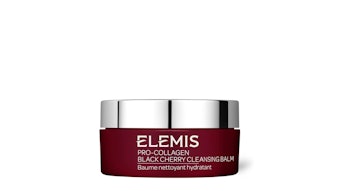With the holiday season around the corner, many gift-givers may drop by your spa to give the wonderful gift of skin care products and spa accessories this holiday season. However, sometimes the person on the receiving end is not so happy with the choice, and she visits your spa, gift in hand, hoping to return it. Whether it is the holiday season or not, having a solid return policy in place is a good idea for your business, allowing you to avoid off-the-cuff decision-making, alleviate stress at the counter for your clients and, ultimately, balance the need to satisfy clients and reduce the hassle associated with merchandise returns. Following are a few details to remember about return policies.
Use clear, concise language. Return policies are an extension of the customer service retailers provide; therefore, it is important to offer a clear and concise return policy and train your staff to explain that policy clearly and consistently. Because consumers today are used to more liberal return policies, they often believe they can always return merchandise for a full refund, regardless of the circumstances. In reality, merchants enjoy great leeway in establishing individual return policies. It starts with spelling out your policy to clients. Try using a bulleted list of no more than 10 details or a short paragraph that captures the pertinent ideas of your return policy.
Your return policy is not a secret.Shoppers want their returns to be effortless and, by clearly disclosing your business’s position on returns, you help them to achieve just that. Be sure to post your return policy on your facility’s website, on the back of the sales receipt and in your retail area. Make sure that your team is explaining your return policy to clients. By explaining the policy, you are helping guide their decision, and that is valuable to clients and to your business. For example, clients who are considering purchasing sale items as holiday gifts from your skin care facility might opt for gift cards if they know that your return policy excludes sale items. Clients should know your return policy up front, and some states even require that a store’s return policy be disclosed to the consumer if a product does not work out for them.
Address general and company-specific ideas. A client purchases a moisturizing cream, takes it home, uses a portion of it, returns a week later to your spa, and states that the product irritated her skin. The client would like her money back. Because of state sanitation regulations, most retailers are prohibited from re-selling used cosmetics; however, return policies must address general ideas like these, and provide guidelines for the client and your staff as to how to handle them. Other general terms in most skin care return policies include: length of time in which to return items, methods of refund, and returns with and without receipts. A good return policy also addresses company-specific ideas. For example, a spa with online sales might include a statement about purchases made over the Internet versus items purchased in the spa, especially if the online and in-store merchandise is different.
Let’s face it—product returns are inevitable; however, there are methods you can use to limit them, such as providing product samples, offering gift cards as gift-giving options and providing product education. A clear, open-book return policy that includes general and company-specific information helps your skin care facility maintain superior customer service and keeps clients coming back.
Regina M. Tucker is an NCEA-certified esthetician, beauty writer and business owner. She also holds a master’s degree in human resources development, and enjoys researching, speaking and providing professional commentaries on pertinent topics impacting today’s skin care professionals. She can be contacted at [email protected].










